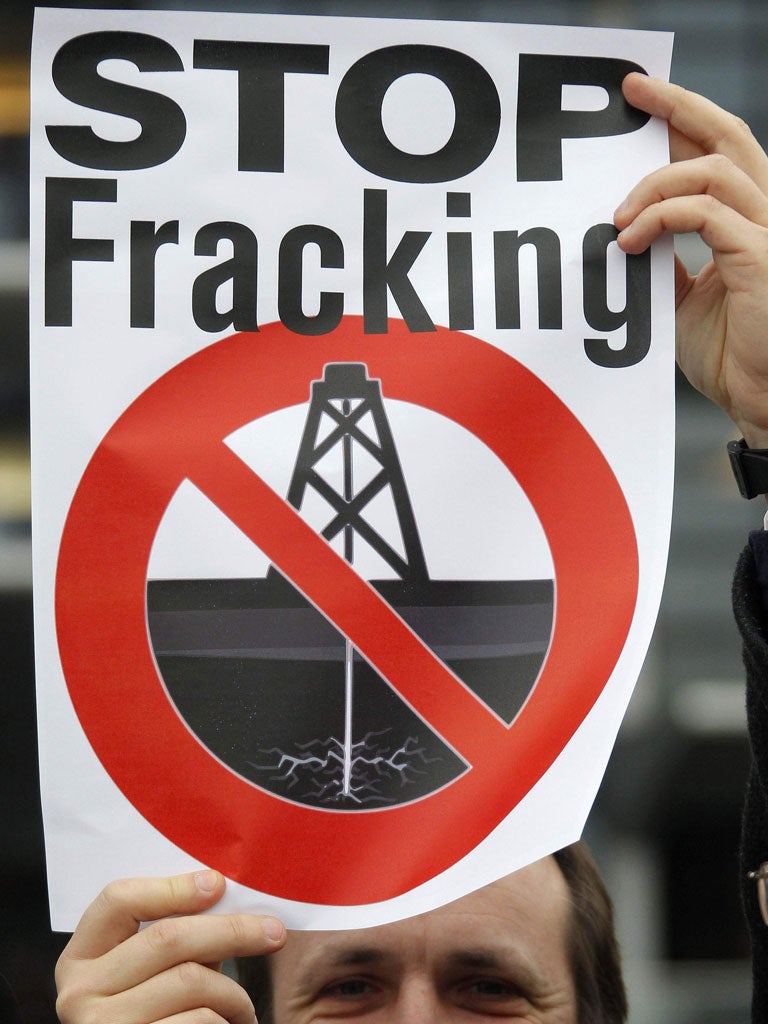Your support helps us to tell the story
From reproductive rights to climate change to Big Tech, The Independent is on the ground when the story is developing. Whether it's investigating the financials of Elon Musk's pro-Trump PAC or producing our latest documentary, 'The A Word', which shines a light on the American women fighting for reproductive rights, we know how important it is to parse out the facts from the messaging.
At such a critical moment in US history, we need reporters on the ground. Your donation allows us to keep sending journalists to speak to both sides of the story.
The Independent is trusted by Americans across the entire political spectrum. And unlike many other quality news outlets, we choose not to lock Americans out of our reporting and analysis with paywalls. We believe quality journalism should be available to everyone, paid for by those who can afford it.
Your support makes all the difference.An unidentified chemical used in fracking in the United States has triggered concern after it emerged it can cause kidney and liver damage.
A subsidiary of Nabors Industries Ltd pumped a mixture of chemicals identified only as "EXP-F0173-11" into half a dozen oil wells in rural Karnes County, Texas, in July.
One ingredient, a solvent, in the blend of chemicals can cause kidney and liver damage, according to information about the product that Michigan state regulators have on file.
A year-old Texas law that requires drillers to disclose chemicals they pump underground during fracking, was powerless to compel transparency for EXP-F0173-11. The solvent and several other ingredients in the product are considered a trade secret by Superior Well Services, a Nabors subsidiary, meaning they are exempt from disclosure.
Drilling companies in Texas, the biggest oil and natural gas producing state, claimed similar exemptions about 19,000 times in the year up to August, according to their chemical-disclosure reports.
Nationwide, companies withheld information on one in five chemicals they used in fracking, a separate examination of a broader database shows.
Trade-secret exemptions block information on more than five ingredients for every well in Texas, undermining the statute's purpose of informing people about chemicals that are transported through their communities and injected thousands of feet beneath their homes and farms, said Lon Burnam, a Democratic state representative and a co-author of the law.
A spokesman for Nabors declined to comment.

Join our commenting forum
Join thought-provoking conversations, follow other Independent readers and see their replies
Comments